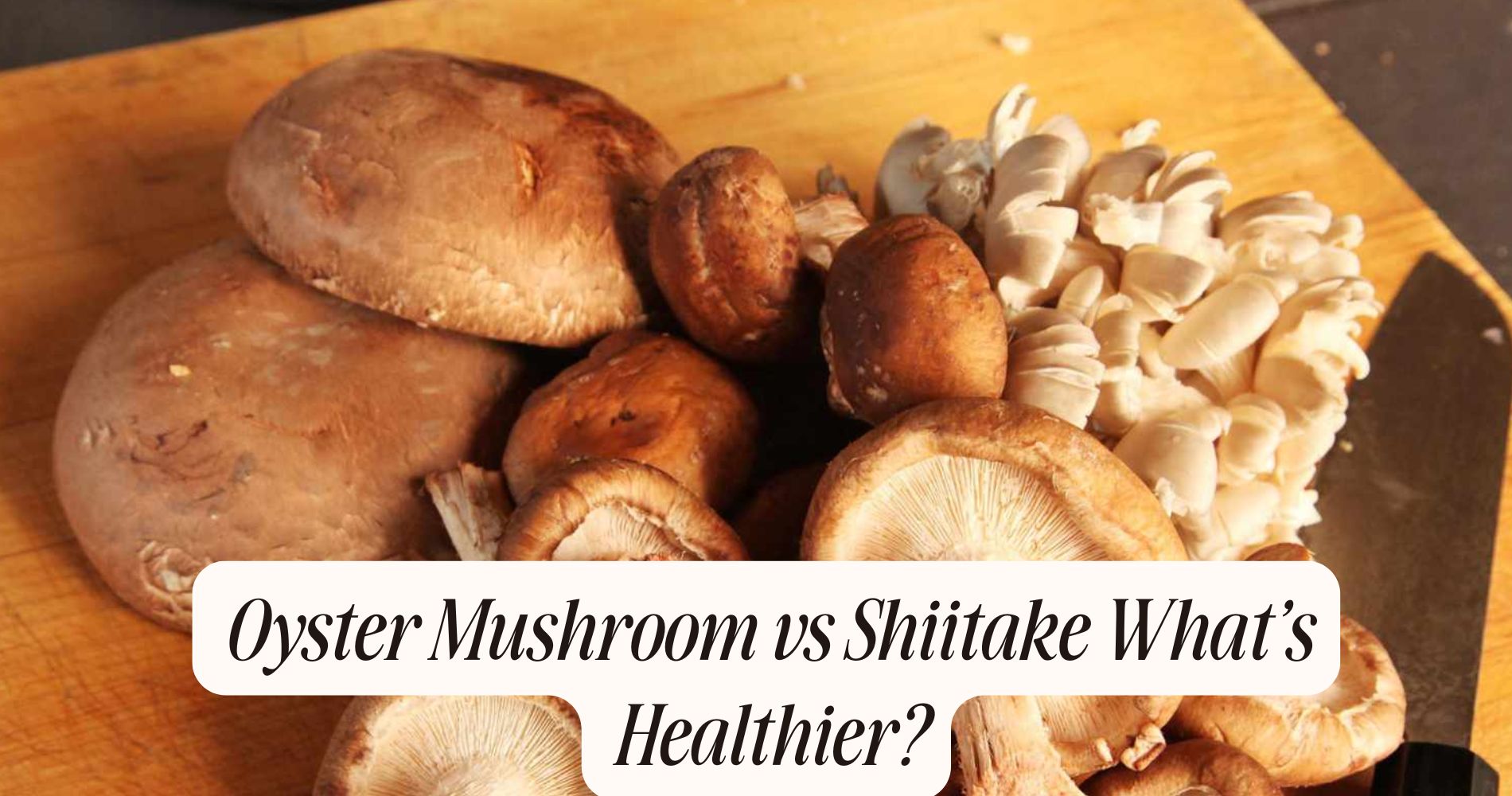
What Does Mushrooms Do to Your Body? Benefits and Effects
What does mushrooms do to your body? Mushrooms pack a powerful punch regarding health benefits, offering essential nutrients that support various bodily functions. They can enhance your immune system, reduce inflammation, and even aid in weight management. Beyond these advantages, certain varieties may also contribute to heart health and mental well-being. Curious about how these fungi can specifically impact your health? Let’s explore the different ways mushrooms can benefit your body.
Nutritional Profile of Mushrooms
When you consider the nutritional profile of mushrooms, you'll find they're packed with essential nutrients that can greatly contribute to a balanced diet.
Different mushroom varieties, such as shiitake, portobello, and oyster, each offer unique nutritional content. For instance, shiitake mushrooms are rich in B vitamins, particularly B2 and B5, which play an important role in energy production.

Portobellos provide a good source of potassium, fundamental for maintaining healthy blood pressure levels. Additionally, most mushrooms are low in calories and fat while being high in fiber, promoting digestive health.
They also contain antioxidants that can help combat oxidative stress. Incorporating a variety of mushrooms into your meals can enhance both flavor and nutritional value.
Immune System Support
Mushrooms play a significant role in supporting the immune system, thanks to their unique compounds and nutrients. Various mushroom varieties, like shiitake, reishi, and maitake, are packed with polysaccharides, especially beta-glucans, which act as powerful immune boosters.
These compounds enhance the activity of white blood cells, helping your body fend off infections more effectively. Additionally, mushrooms provide essential vitamins and minerals, such as vitamin D, which further supports immune health.

Research shows that consuming these fungi regularly can improve your immune response and reduce inflammation. By incorporating different mushroom varieties into your diet, you can harness their potential to strengthen your immune system and maintain overall well-being.
Antioxidant Properties
The antioxidant properties of mushrooms are impressive and contribute considerably to their health benefits.
These fungi are packed with various antioxidant compounds, such as ergothioneine and glutathione, which help combat oxidative stress in your body. Oxidative stress occurs when there's an imbalance between free radicals and antioxidants, leading to cellular damage and chronic diseases.
By incorporating mushrooms into your diet, you can enhance your body's defense against these harmful free radicals. Research suggests that the antioxidants found in mushrooms not only help reduce inflammation but also support overall cellular health.
Weight Management and Metabolism
Incorporating mushrooms into your diet can considerably aid in weight management and boost metabolism due to their unique nutritional profile.
With low caloric content, mushrooms allow you to enjoy a hearty portion without overloading on calories. This makes them an excellent choice for anyone looking to maintain or lose weight.

Moreover, mushrooms contain essential nutrients and bioactive compounds that can enhance metabolic processes. Studies suggest that the fiber in mushrooms helps regulate appetite, promoting satiety and reducing overall calorie intake.
Additionally, their rich vitamin D content may support metabolic functions. By adding mushrooms to your meals, you’re not just enhancing flavor; you’re also giving your metabolism a natural boost, making it easier to achieve your weight management goals.
Cardiovascular Health
Several studies highlight the positive impact mushrooms can have on cardiovascular health. Certain mushroom varieties, like shiitake and oyster, contain bioactive compounds that support heart health. These compounds help lower cholesterol levels, reduce blood pressure, and improve overall circulation.
For instance, the ergosterol present in mushrooms can convert to vitamin D, which is linked to lower risks of heart disease. Additionally, antioxidants found in mushrooms combat oxidative stress, further protecting your heart.
Regular consumption of these fungi can enhance your diet, offering a low-calorie option packed with nutrients. Incorporating a variety of mushrooms into your meals not only diversifies flavors but also strengthens your cardiovascular system, making it a smart choice for your overall well-being.
Brain Function and Cognitive Support
While you might think of mushrooms primarily as a culinary ingredient, their potential benefits for brain function and cognitive support are gaining attention in scientific research.
Certain varieties, like lion's mane and reishi, are celebrated for their neuroprotective effects. These mushrooms contain compounds that may stimulate nerve growth factor (NGF) production, which is essential for the maintenance and survival of neurons.
Studies suggest that regular consumption can lead to cognitive enhancement, improving memory and learning. Additionally, mushrooms like cordyceps may enhance mental clarity and focus, further supporting cognitive tasks.
Anti-Inflammatory Effects
Mushrooms possess remarkable anti-inflammatory properties, which can play a crucial role in promoting overall health. Various mushroom types, such as reishi and shiitake, contain compounds like polysaccharides and triterpenes that help in inflammation reduction.

Research shows that these compounds modulate immune responses and inhibit the production of inflammatory cytokines, effectively lowering inflammation levels in the body. By incorporating mushrooms into your diet, you can potentially alleviate symptoms associated with chronic inflammatory conditions like arthritis and cardiovascular diseases.
Additionally, the antioxidants found in mushrooms combat oxidative stress, further supporting their anti-inflammatory effects. Overall, adding different mushroom types to your meals can be a delicious and beneficial way to enhance your health and reduce inflammation.
Gut Health and Digestion
When it comes to gut health and digestion, incorporating mushrooms into your diet can be a game-changer.
Mushrooms, particularly varieties like shiitake and maitake, offer prebiotic benefits that nourish beneficial gut bacteria. These mushrooms contain polysaccharides, which promote a healthy microbiome, enhancing digestion and nutrient absorption.

Additionally, they provide digestive enzymes that aid in breaking down food, making it easier for your body to utilize nutrients effectively. Research indicates that a diverse gut microbiome can improve overall health, reducing gastrointestinal issues.
By regularly adding mushrooms to your meals, you not only support your digestive system but also encourage a balanced gut environment, leading to better overall wellness.
Potential Cancer-Fighting Properties
Emerging research suggests that certain mushrooms may have potential cancer-fighting properties, making them a valuable addition to your diet.
Medicinal mushrooms like reishi, shiitake, and turkey tail have gained attention in cancer research for their bioactive compounds. These compounds, such as polysaccharides and triterpenes, have shown the ability to enhance immune function and inhibit tumor growth.
Studies indicate that these mushrooms can promote apoptosis, or programmed cell death, in cancer cells, while sparing healthy cells. Additionally, they may reduce inflammation, a key factor in cancer development.
Incorporating Mushrooms Into Your Diet
Incorporating mushrooms into your diet can be a simple yet effective way to enhance your overall nutrition and well-being. These versatile fungi offer various dietary options, rich in vitamins, minerals, and antioxidants. You can easily add mushrooms to your meals by experimenting with mushroom recipes like stir-fries, soups, or salads.
Not only do they provide a savory flavor, but they also have low calories and high fiber content, making them an excellent choice for weight management.
Consider using different varieties, such as shiitake or portobello, to diversify your nutrient intake. By regularly including mushrooms in your meals, you can boost your immune system, support heart health, and enjoy a delicious, nutritious addition to your diet.
Try Mushrooms the Tasty Way: SUPER MUSHROOM GUMMIES
Looking to experience the benefits of mushrooms without the prep? Try SUPER MUSHROOM GUMMIES from Well Gummies. Each chew packs the power of 10 functional mushrooms—supporting energy, focus, and immune health—in a convenient, candy-like format. With a delicious wild berry flavor, no jitters, and no crash, they’re the perfect daily boost for your body and mind.
Frequently Asked Questions
Can Mushrooms Cause Allergic Reactions in Some Individuals?
Yes, mushrooms can cause allergic reactions in some individuals. Your immune response may mistakenly identify mushroom proteins as harmful, leading to symptoms like hives or digestive issues. Awareness of mushroom allergies is essential for safe consumption.
Are There Any Toxic Mushrooms to Avoid?
Yes, you should definitely avoid toxic mushrooms. Familiarize yourself with poisonous varieties through proper mushroom identification techniques. Educating yourself on distinct characteristics can prevent dangerous encounters and guarantee safe foraging practices. Always err on the side of caution.
How Do Mushrooms Interact With Medications?
Mushroom interactions can greatly alter medication effects. Certain mushrooms may enhance or inhibit drug metabolism, affecting how your body processes medications. Always consult a healthcare professional before combining mushrooms with any prescribed treatments for safety.
Can Mushrooms Help With Mental Health Issues?
Mushroom compounds, like psilocybin, show promise for enhancing mental wellness. Research suggests they may help alleviate symptoms of anxiety and depression, promoting emotional resilience and offering new therapeutic avenues for those struggling with mental health issues.
Are Mushrooms Safe for Pregnant or Breastfeeding Women?
Mushrooms can be safe for pregnant or breastfeeding women, as they provide beneficial mushroom nutrition. However, it’s essential to consult your healthcare provider to guarantee they support fetal development without any risks.
Conclusion
Incorporating mushrooms into your diet can greatly enhance your overall health. Their rich nutritional profile supports immune function, offers antioxidant protection, and aids in weight management. Additionally, mushrooms promote cardiovascular health and possess anti-inflammatory properties that may reduce chronic disease risk. By adding these versatile fungi to your meals, you not only enjoy their unique flavors but also harness their potential benefits for gut health and even mental well-being. Make mushrooms a regular part of your balanced diet for ideal wellness.




